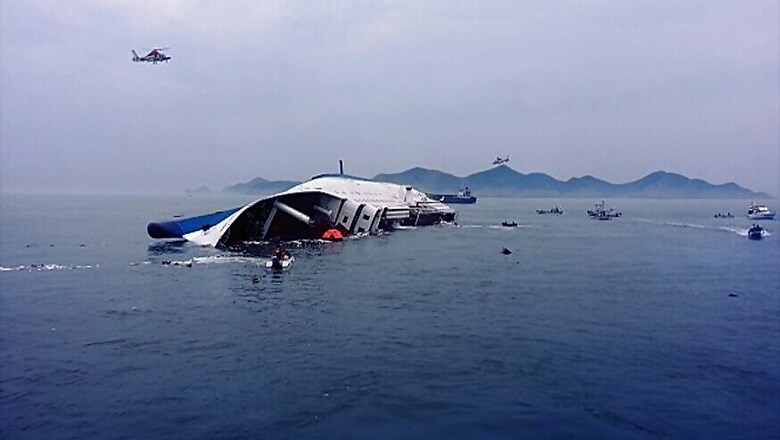
views
Lee Yong-kwan and Jay Jeon are back to heading the Busan International Film Festival. While Lee has been named Chairman with a four-year term, Jeon will be the Festival Director for three years. Soon after the October 2014 edition of the Festival in South Korea's second most important city, Lee and Jeon were dismissed, because they had dared to defy the Busan City Council – which did not want a searing documentary, The Truth Shall Not Sink With Sewol, to be screened at the event. The Busan City Mayor, Suh Byung-soo, then held an ex-officio position on the Festival's Board.
The years following 2014 saw trying times for the Festival. Busan City, which was the Festival's biggest source of funding, reduced grants. Lee was prosecuted for financial irregularities. The documentary minced no words to show how the Government authorities were responsible for the 300-plus deaths in a ferry disaster in South Korea.
I have not been able to watch the film, but a Variety review had this to say about it: "The Truth Shall Not Sink With Sewol brings impressive urgency and plenty of outrage to bear on a tragedy that will demand continued scrutiny in years to come. Emerging barely six months after the South Korean ferry disaster that claimed the lives of more than 300 passengers in April, this raw, ragged, controversy-stirring item never pretends to take a comprehensive view of its complex subject, instead using a narrow account of one man’s stonewalled rescue efforts to pry open a small, infuriating window on the staggering levels of Government incompetence and media collusion at work."
The Festival has in just over two decades of its existence grown impressively, leaving far behind much older fetes in Tokyo and the International Film Festival of India (IFFI). And an important reason for this is the Busan Festival leadership, which has remained fearless, and committed to meaningfully bold cinema.
And what a contrast this is to what has been happening in India. Last year, IFFI did not allow Sanal Sasidharan's S Durga (retitled from 'Sexy Durga') and Ravi Jadhav's Nude to be screened at Goa's Panaji. Mind you, both were fiction features. While Nude spoke about the hapless plight of a poor woman who is forced by poverty to pose in the buff for an art school, S Durga was all about an eloping couple and the fear they experienced on a lonely highway in the middle of the night. Both movies were selected by a panel set up by the Union Information and Broadcasting Ministry, which organizes IFFI.
Sometimes, I wonder whether we are any different from countries like Iran, where art has been under threat for years. A master auteur like Jafar Panahi has been banned from making films for 20 years – pushing him to secretly step behind the camera and smuggle his works into Cannes and Berlin. Some yeas ago, his Taxi won the Golden Bear in Berlin, and here Panahi, living under some kind of house arrest, disguised himself as a cabbie, drove a taxi on the streets of Teheran, placed a small camera on the dashboard, shot conversations with the passengers he picked up and created a riveting movie.
Of course, India has had its fair share of courageous directors. Anurag Kashyap made Black Friday on the aftermath of the Mumbai blasts and successfully fought for its theatrical release. Arindam Sil's Dhananjoy – on the controversial hanging of a watchman in Kolkata -- was not given a censor certificate for a long time, because it sought to provoke a debate on capital punishment in a country where popular sentiment demands executions at the drop of a hat. It has been studied and documented the world over that death penalty does not deter capital crimes. Sil fought long and hard to get his work passed by the censors.
Cinema is undoubtedly under severe strain – in India (Padmaavat is the latest example) and elsewhere. An award winning Russian feature, Leviathan, was heavily scissored and allowed very limited openings, because it was brutally anti-Government. And there you go.
(Gautaman Bhaskaran is an author, commentator and movie critic)




















Comments
0 comment